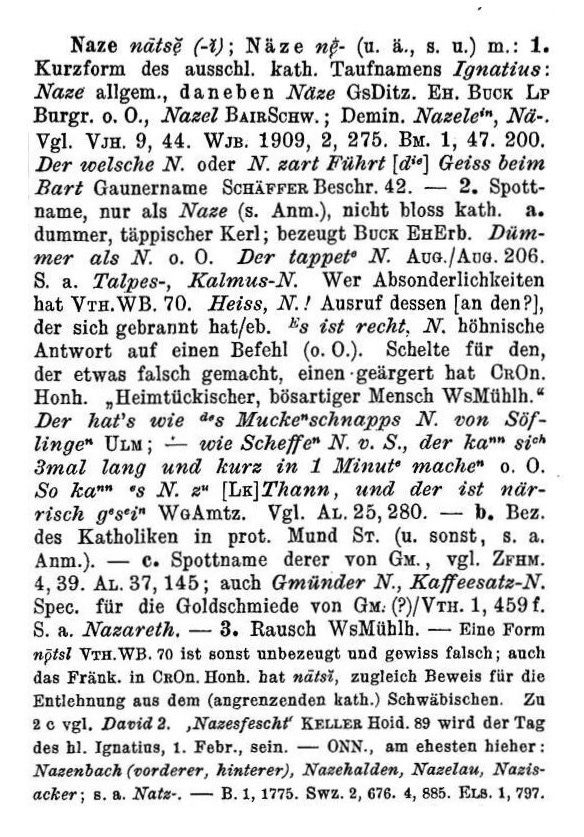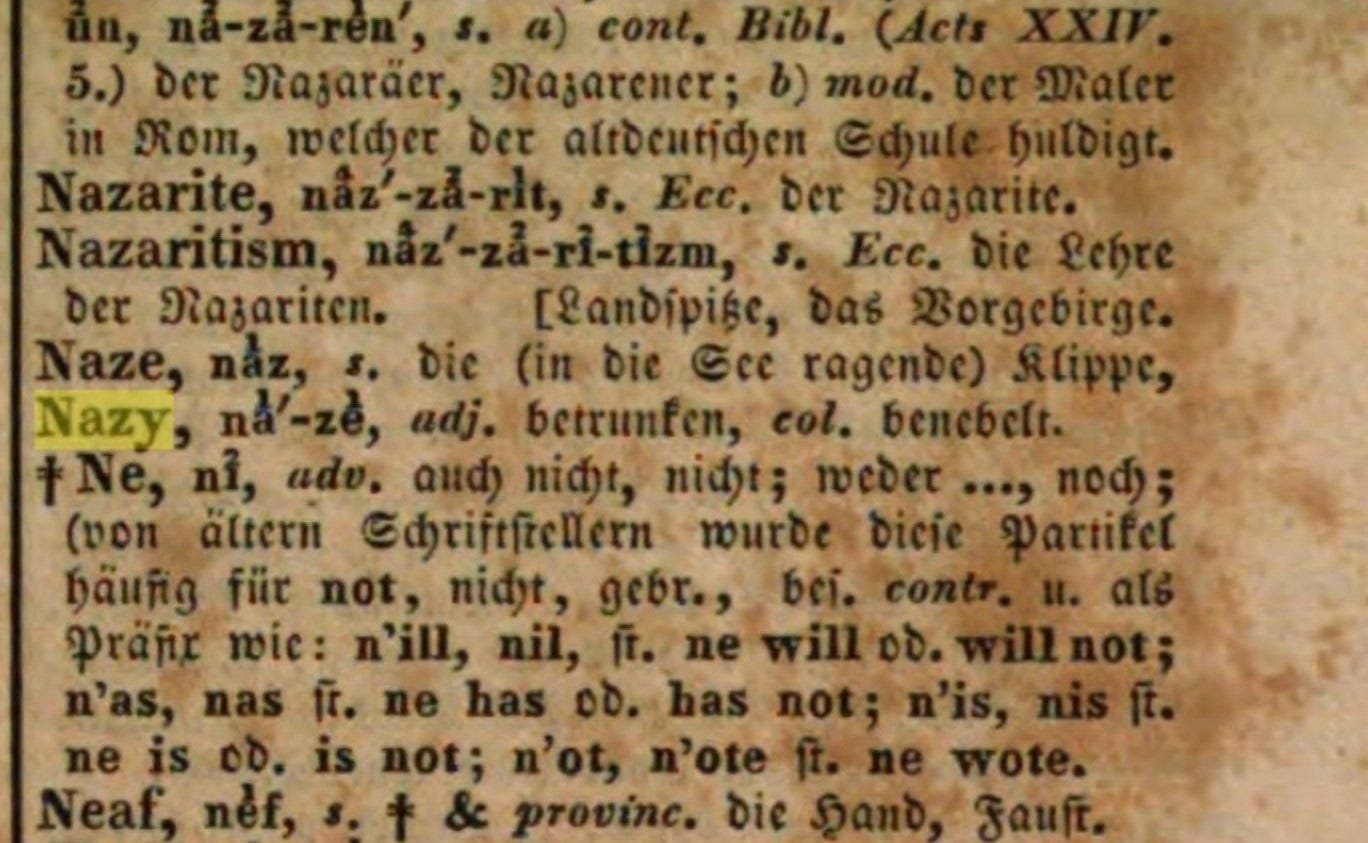Comrade Kamala: Nazi or Nazy?
When you realize that ‘nazy’ means ‘drunk,’ a lot of opportunities for ridicule pop up.
Does Comrade Kamala have a drinking problem, or does she believe in the collectivist faith that has never functioned in 400 years? Because once you’ve brought this up and viewed the videos of her acting all nazy (drunk), it’s hard to unsee them and not start asking questions. Weirdly enough, fate has the two words in the headline that apply to this situation.
So, in the spirit of their marketing blunder of Kraft durch Freude (strength through joy), we will have a little fun looking at how these words from history relate to our dear comrade vice president.
The NSDAP — the Nazis — really stepped in it, with a name that fell directly in line with a derogatory word that reaches back well over a century, to at least 1795 and even farther.
(Long before the formation of Hitler’s Little Beer Hall Party and before the emergence of the word socialism.)
Although the term can be found in books that reach back through the centuries, guidance from the Etymological Dictionary of the German Language indicates that its modern usage is tied to the name “Ignak,” in a 1795 reference, or “Ignatius,” in a book published in 1821 on the dialects of Bavaria.
The derogatory sense of the term can be seen in an 1828 edition of a Bavarian dictionary: (translated)
Nazi, Naz 1, Ignatius. Ha, Názi ! usual exclamation when you have burned yourself.
The word kept its nature as a “mocking name” throughout the 19th century, epitomized by the translation from the 1896 Yearbook for History, Language and Literature of Alsace-Lorraine:
The name Ignaz is generally considered to be a symbol of stupidity and simplicity. Anyone who is blessed with these gifts is called a Nazi [Nâtsi], or one says of him that he is a stupid Nazi [tès i’s ǝ tùmər Nåtsi]. He therefore does not need to be called Ignaz.
Curiously enough, late in the 1800s, there was a divergence from the dummer Nazi narrative to one of a more globalist flavor in the book from 1872 entitled Pater Filucius, with one of the thugs in the story referred to as the Inter-Nazi, or International Nazi. This changed the Nazi to a sinister character, four decades before the emergence of the NSDAP. A more “recent” reference, the 1914 Swabian Dictionary. 4, I, J, K, Q, L, M, N, added some additional insights into the term.
2. Mocking name, only ais Naze (see note), not just Catholic a*stupid, clumsy fellow; testifies to Buck EHErb. Dummer as Nazi. o. 0. The tappet6 N. Aug./Aug. 206.S. a. Talpes Kalmus-Nazi. Who has peculiarities Vth. WB. 70. Hot, Iggy! Exclamation of the one who burned himself/eb. It’s right, Iggy. scornful response to an order (n.d.). Scolding for the one who has done something wrong, annoyed one CROn.
Thus, we can see that this first word could apply to not only an authoritarian leftist, but also someone who tends to talk in word salads without any dressing.
Is Comrade Kamala Nazy?
But perhaps it’s a case where Comrade Kamala has imbibed a bit too much — being “Democrat While Intoxicated” (DWI). In a “weird” sense, fate has another descriptive word that is also very applicable in this case.
From the Complete Dictionary of the English and German, published in 1856 (translated):
Nazy, nazi, na-ze, drunken adj, intoxicated adj, inebriated adj
Though it seems to have been a common word throughout the 1800s, WWII and the NSDAP seem to have blotted it out. It’s time to bring it back, given the circumstances. It’s a nice little old-world term that can describe our current vice president and the primary cause of the chaos, and a fun trigger word for the far left.
Leftists love to hurl their little lies at the drop of a Deutschland Erwache (D.E.) banner without ever trying to back them up with even a shred of factual evidence. This research shows that these words mean more than what is commonly considered, so if the fascist far left wants to engage in this kind of word warfare, we can start asking questions in response.
Fate seems to have once again served up some fine rhetoric to the sinister side of the political spectrum, it’s encouraging in the sense that it shows they are on the wrong side of history.
Originally published on the American Thinker








